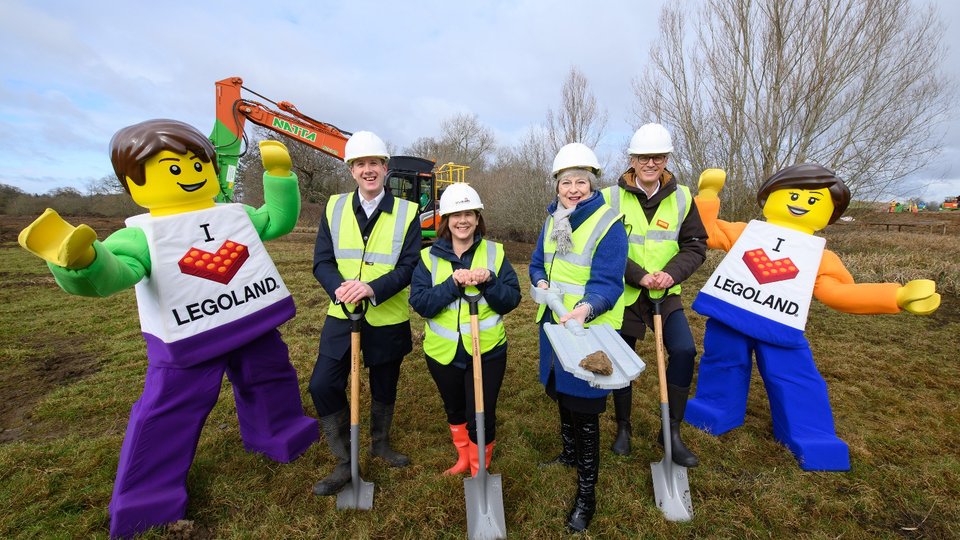Commentary
Economic uncertainty fertilizes crop of regional entertainment parks
Mid-scale entertainment resorts can offer more compelling entertainment on a smaller scale, supporting the expected audience generated regionally.

March 27, 2023 by Kevin Williams
While major corporations in the tech and entertainment sectors undergo restructuring and execute stringent layoff measures, another term seems to be gaining traction, that of the "regional park." Often used to describe small and mid-scale theme parks, these developments also include the new generation of indoor entertainment facilities.
These mid-scale entertainment resorts can offer more compelling entertainment on a smaller scale, supporting the expected audience generated regionally. Also, these venues can experiment with the latest technology towards creating big experiences in smaller spaces.
The implementation of new social entertainment elements to the hospitality on offer at these venues is one aspect, as well as the use of new immersive adventure attractions.
This can be seen with the acquisition of entertainment company Two Bit Circus by Alpine Acquisition Corp. and its plans to redevelop conference venue hotel properties into the new Revelers Resort brand of interactive, immersive adventure properties, the first of these hotels being purchased in Denver, Colorado.
Further announcements will see major IP holders throwing their hats into the ring, launching a mixture of new resort and location-based entertainment properties.
Indoor entertainment, regional proximity
This is a marriage of indoor entertainment with regional proximity, all linked to a need to address the abandonment of retailing in some areas, making available suitable spaces in retail locations that can now be re-purposed as entertainment anchors.
The concept has already gained traction with the development of properties such as the Merlin Entertainments' Legoland Korea Resort, the Legoland Windsor Resort in the U.K. and the new Falcon's Resort by Melia brand from Falcon's Creative, looking at establishing a new "resortainment" brand.
The Merlin Entertainment theme park has decided to revert to a wholly physical scare attraction approach and announced that, opening in spring, will be "Ghost Train," which will be "a petrifying experience" — according to the park's web page.
The operator's experience with the project was reported as having cost, originally, some £13 million ($15.9 million) to develop.
The use of prominent properties, from movie to toy brands, is being included in the mix of these new kind of mid-scale venues. As seen with Hasbro and its development of Hasbro City in Mexico following projects such as Nerf Action Xperience, planned to open in Manchester, U.K., or the plans by Mattel for Mattel Adventure Park in Glendale, Arizona and its partnership with Epic Resort Destinations.
On the backs of these developments, we see other corporations looking to position their properties to be best able to grow in this emerging sector.
Universal Parks & Resorts goes regional
Most recently, Universal Parks & Resorts announced plans to build Universal Kids Frisco in Texas, a regional park aimed at an audience aged between six and nine and their families, supported by a 300-room hotel and developed to incorporate attractions, with areas of the park based on Universal movie properties such as "Minions" and "Shrek."
This development comes close behind the news of the development of a Universal Horror Unleased indoor attraction and hospitality venue as part of the expansion plans for Area 15 in Las Vegas.
The global recession's impacts across the business landscape has also seen the return of the term "staycation," as families look towards managing their budgets and saving where possible. Lavish international vacations and trips to major theme park resorts may be lessened in this climate.
The term "staycation" refers to the support of entertainment closer to home and will be familiar to those who have weathered the 1991 and 2009 global recessions.
But this explosion in new venue business has also been fueled by a hunger from an audience emerging from lockdown and seeking social entertainment.
(Editor's note: Extracts from this blog are from recent coverage in The Stinger Report, published by Spider Entertainment and its director, Kevin Williams, the leading interactive out-of-home entertainment news service covering the immersive frontier and beyond.)
About Kevin Williams
Along with advisory positions with other entrants into the market he is founder and publisher of the Stinger Report, “a-must-read” e-zine for those working or investing in the amusement, attractions and entertainment industry. He is a prolific writer and provides regular news columns for main trade publications. He also travels the globe as a keynote speaker, moderator and panelist at numerous industry conferences and events. Author of “The Out-of-Home Immersive Entertainment Frontier: Expanding Interactive Boundaries in Leisure Facilities,” the only book on this aspect of the market, with the second edition scheduled for a 2023 release.
 ChatGPT
ChatGPT Grok
Grok Perplexity
Perplexity Claude
Claude






